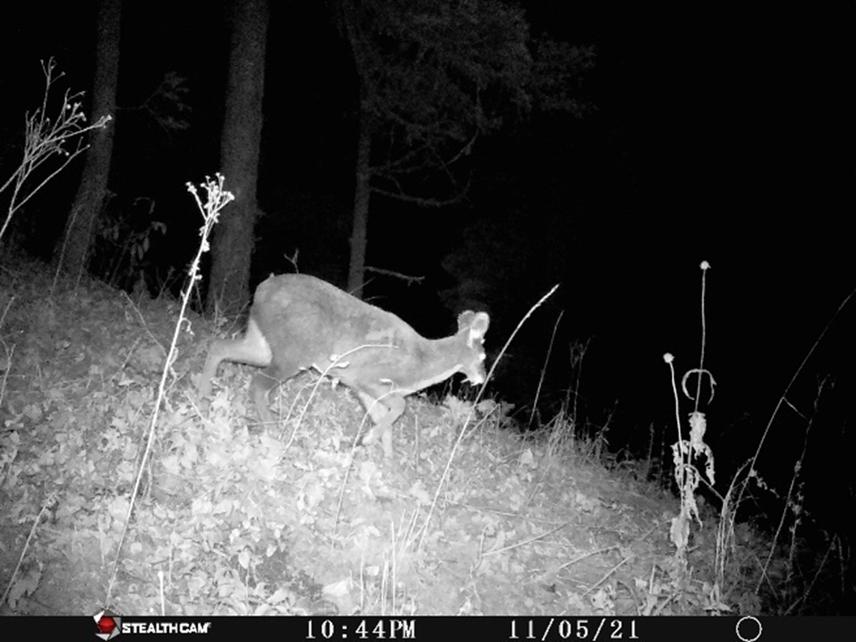Tilak Thapamagar
Other projects
2 Nov 2020
Enhancing the Local Community for Musk Deer Conservation in Khaptad National Park, Western Nepal
The musk deer is of the protected species by Nepal Government and listed an Endangered by IUCN. It is rapidly declining and gravely threatened with extinction due to poaching and anthropogenic pressure in Khaptad National Park (KNP). The poachers kill the adult male as it bears musk pod which has high demand across the globe to prepare high-quality perfumes and medicine. The killings of adult male adversely impact the population structure of the musk deer. This project aims to explore major threats to musk deer and build people networks for long term conservation of Musk deer in KNP, Nepal.

Musk deer (camera trap).
Himalayan musk deer is one of the highlighted species in the Himalayan region and an ‘Endangered’ by IUCN Red List Category. It is also protected species by Nepal's National Park and Wildlife Conservation Act, 1973. Musk deer are facing threats highly; killing of musk deer by poachers for musk pod extraction is one of the greatest threats for this species so the population is in decreasing trend (Jnwali et al. 2011). Musk deer distributes at altitudinal range of 2,000-5,000 m asl (Harris 2016). Due to poaching, deforestation, habitat fragmentation and degradation, population of musk deer has been declining dramatically. Moreover, livestock depredation, overgrazing, forest fire, human encroachment for firewood and medicinal herbs collection are additional threats to the musk deer in this area. Therefore, it is very urgent to mitigate these threats for the existence of musk deer from Khaptad National Park (KNP) area of Nepal.
KNP lies in western part of Nepal and is a home for highly threatened species - snow leopard, red panda, musk deer, and several birds and plant species. There are wilderness areas along the rivers within the park that are crucial for transboundary movement of wild fauna. Anthropogenic pressure, poaching and lack of wildlife conservation program are additional problem in KNP. Besides of, poaching, people also hunt musk deer for meat, skin and tusk which is also one of the major problems in proposed study area.
In this project, our overall goal is to conservation musk deer in KNP. This project will contribute for long term conservation of the musk deer in KNP and its surroundings. Our project targets local community, park rangers and game-scouts, traders, buffer zone committee and school students to take conservation activities in KNP. This may helpful to sharing the ecological importance of the musk deer in the Himalayan region. Moreover, it also controls illegal collection of firewood, medicinal herbs, and overgrazing in KNP.